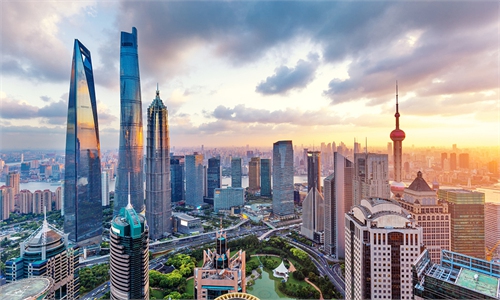Beijing, Shanghai and Shenzhen top three most attractive cities for people born after 1995: survey

Young staff work overtime at night in the office. Photo: VCG
Beijing, Shanghai and Shenzhen are the top three most attractive cities for people born after 1995, who have an obvious tendency of working and living in cities in the east part of China, said a survey conducted by Chinese job hunting platform Zhilian Zhaopin.
According to the survey, young people born after 1995 prefer to keep a balance between life and work. Besides wages, they also care about the cities' innovation environment and entertainment industry situation.
Guangzhou, Hangzhou, Nanjing, Suzhou, Chengdu, Wuhan and Foshan are also among the top 10 most attractive cities, most of which are in China's east and south coastal regions. These young people tend to move to the Yangtze River Delta, Pearl River Delta and Beijing-Tianjin-Hebei region while there is a net outflow from Chengdu-Chongqing region and the middle reaches of the Yangtze River, said the survey.
Zhilian Zhaopin released the survey at a forum focusing on China's employment situation where experts expressed confidence in the prospect of China's job market and its economy in 2023.
The job market is expected to witness an obvious recovery after the Spring Festival after the optimized COVID-19 control measures, Guo Sheng, CEO of Zhilian Zhaopin, told media.
The service industry such as catering industry, entertainment and tourism will have a relatively quick short-term recovery. New economy and high technology enterprises will also see a rapid recovering tendency, Guo noted.
The Chinese economy is very likely to quickly recover in 2023 with a better-than-expected growth rate, Yao Yang, dean of National School of Development from Peking University, said at China Human Capital International Management Forum hosted by Chinese job hunting platform Zhilian Zhaopin on Friday.
New infrastructure and new energy are the two most explosive areas to support China's economy in the next 20 years, including new energy vehicles, public charging stations, new generation information technology, digital economy, artificial intelligence, data centers and industrial Internet, said Ren Zeping, a former chief economist at the real estate giant China Evergrande Group.
Yao said that China's economy has the growth potential of between 5.5 to 6 percent, 3.75 percent of which would be attributed to capital accumulation while 1.5 to 2 percent of which would be brought by technological progress.



